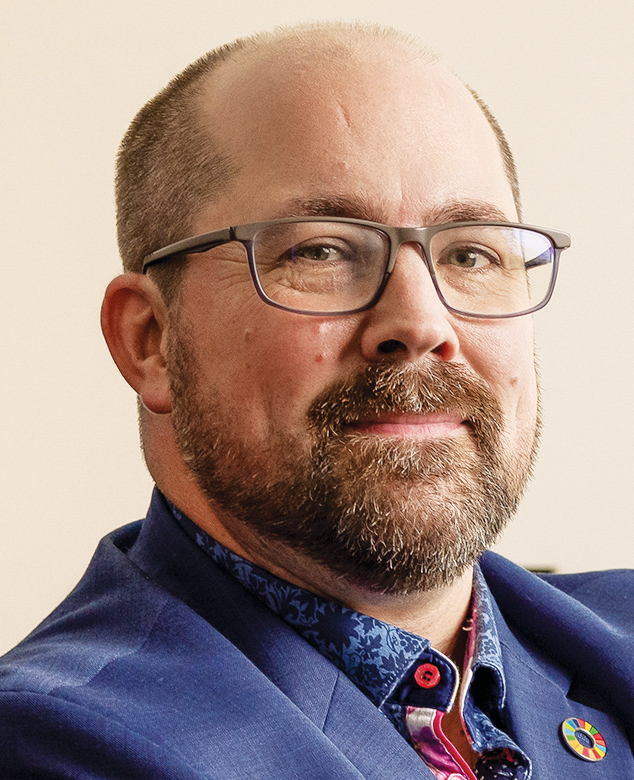Gratitude and hope
 |
| Dr Joshua Greggain |
“People will forget what you said, people will forget what you did, but people will never forget how you made them feel.” This quote from Maya Angelou has helped guide me throughout my career, and recently, as president of Doctors of BC, I have used it when speaking at events to encourage the audience to listen to the content not only with their ears, but also with their emotions. Years ago, an Indigenous Elder taught me the concept of listening with all three of our ears—the two on our head and the one in our hearts. And while Angelou’s quote has guided how I have engaged with you this past year, it also rings true for how being president has made me feel. After connecting with many of you in person, on Zoom, and through the written word, I have one prevailing feeling—gratitude.
In my travels, both virtually and in person, from urban to rural, remote, and Indigenous communities, you have welcomed me, and for that, I am eternally grateful. Thank you for inviting me into your boardrooms and living rooms and for having honest and candid conversations on topics from digital health to physician engagement, strategic direction, and system transformation, among others. Thank you for sharing your stories of innovation, resilience, and dedication, while also trusting the space to speak about more difficult conversations, including physician well-being and personal grief. I stand in awe of so many of you for persevering during challenging times and for teaching and leading your colleagues and our doctors of tomorrow, even if at times not feeling old enough or mature enough to do so. Above all, I admire your unwavering dedication to your patients and your colleagues.
We walked together in forests, fished together in the ocean, drank coffee together at your favorite local coffee shops, and enjoyed meals together throughout the province. I am grateful for the opportunities to share homemade eggs in your kitchen, enjoy bannock in your clinic, and spend time together in symposiums as well as in longhouses. It was the compilation of experiences that provided me the chance to truly connect. Thank you for the advice, consideration, and appreciation you gave me; I hope you felt the same in return.
Over the year, you may have heard me refer to the framework of human being, human doing, which is an approach I learned from Indigenous Elders. I believe it is our collective humanity that brings us together in our profession and in the care of our patients. This past year I saw immeasurable examples across the province. I am incredibly grateful to know you, as human beings, and for the human doings that you each carry out in your homes, offices, hospitals, and communities.
Many of you have heard me introduce myself as a physician from Hope, both the municipality and the ideological vantage point. As I look ahead, I am overcome with the feeling of hope—hope to find solutions to the challenges faced by so many and hope to see our profession come together to create a health care system that works for all. Many of you have told me that you feel more optimistic than you have over the last few years, that the work being done by Doctors of BC to reflect the physician voice in the space of advocacy, equity, and navigating collaborative partnerships gives you hope. I know many family physicians and specialists, urban and rural alike, have felt more hope this past year because of the Longitudinal Family Physician Payment Model and its impact on primary care. Collective hope is not a destination, but rather a journey that we travel together. Thanks to each one of you. I am confident that, overall, we are further along on this journey than when I started my term.
Thank you for the opportunity to serve you and the profession and for the feelings of gratitude and hope you have instilled in me. I can only hope that I have left you with a shared sense of both. And I think it only fitting to end this commentary as I have ended all my email correspondence this year and how I feel in general:
With gratitude,
—Joshua Greggain, MD
Doctors of BC President
hidden
 |
| This work is licensed under a Creative Commons Attribution-NonCommercial-NoDerivatives 4.0 International License. |

